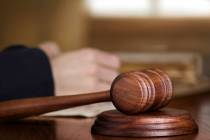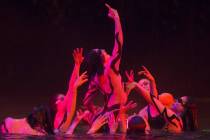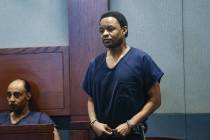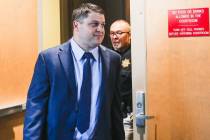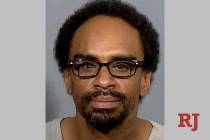Ruling raises questions about laws concerning advantage gamblers
One member of the MIT Blackjack Team portrayed in the movie "21" was apparently too good at her trade.
Five times professional gambler Laurie Tsao was escorted off Caesars Entertainment properties under four aliases, with warnings that she had committed trespass and would not be allowed to return.
Yet the company's marketing department sent her targeted promotions for comped rooms, including one that offered special treatment during the NCAA basketball tournament, leading her to return to Caesars Palace, which resulted in her arrest on the casino floor on March 19, 2008.
In a 39-page opinion entered on Tuesday, the 9th U.S. Circuit Court of Appeals ruled that a lower court correctly dismissed Tsao's allegations that she was falsely arrested and defamed by a Las Vegas police officer early that morning and that her constitutional rights were violated by the officer and Caesars. But the court reversed rulings by the lower court that dismissed her claims against Caesars for false arrest and defamation, among other offenses, under Nevada statutes.
The latter parts will be returned to U.S. District Judge Robert C. Jones for further review, although the three-member 9th Circuit panel suggested it may require intervention by the Nevada Supreme Court to sort through "weighty and unsettled questions of state law."
In particular, the 9th Circuit left open the question of when does a casino rescinds a trespass where certain players are banned from playing after being caught using techniques such as card counting in blackjack.
Tsao had received an invitation for a three-night stay plus access to VIP viewing and betting areas for college basketball games. "(I)t could be pertinent - depending on what Nevada law concerning consent to trespass turns out to be - whether (Caesars) anticipated that those potential customers invited to stay at its hotel or bet on basketball would gamble in its casino," the court wrote.
The case was originally brought against Caesars subsidiary Desert Palace Inc.
In another aspect of the case, the court raised but did not answer the question of whether a casino security officer committed a false arrest by detaining Tsao in a holding room as a citizen's arrest based on the suspicion that she was trespassing. Tsao's lawyers contended that a citizen's arrest can take place only when a misdemeanor has been committed.
The court depicted the lawsuit by Tsao as part of the "high-stakes cat-and-mouse game" between the house and advantage gamblers, who the casinos contend use tactics such as card counting to gain an unfair advantage. Nevada law allows casinos to ask advantage players to leave with a warning not to return on the first offense, then charge the players with a misdemeanor if they refuse to leave or return at another time.
To enforce this, the casinos send security people through training, allowing them to issue citations to Justice Court under a power called summons in lieu of arrest.
At 5:18 a.m. on the morning Tsao was arrested, Caesars Palace night shift security supervisor Clint Makeley and two guards approached Tsao at a table and asked for her identification. When she said she had none, she was handcuffed and led to a holding room, the basis of her defamation of character claim, after she had asked to leave the casino and was turned down.
Tsao was held there until Las Vegas police officer Travis Crumrine arrived and determined her identity through a complex process that involved finding her car in the parking lot using the panic button on her key fob.
Tsao was booked at Clark County Detention Center on counts of trespass and providing false information to an officer, although prosecutors later dropped the charges. Still, she filed a civil complaint against Crumrine and Caesars that has been in front of the 9th Circuit for more than three years.









